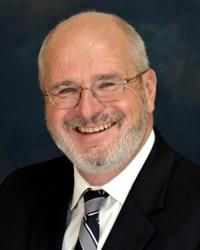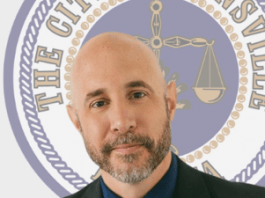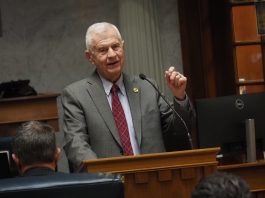Angry days are here again
The withdrawal of U.S. Sen. Tim Scott, R-South Carolina, from the 2024 presidential race makes at least one thing clear.

John Krull, publisher, TheStatehouseFile.com
The days of conservative happy warriors in the mold of the late Ronald Reagan are over, perhaps for good. Rage now is all the rage within the Republican Party.
Scott left the race abruptly on a Sunday night—so abruptly that most of his campaign staff didn’t even know it was coming. He dropped the bomb during an interview with Trey Gowdy of Fox News, who is a former South Carolina congressman and a close friend of Scott’s.
Scott told Gowdy that the voters had spoken to him. Their lack of support persuaded the senator to “suspendâ€â€”polite political speak for “lock the doors, board up the windows and go out of businessâ€â€”his presidential campaign.
Scott really didn’t have much choice.
Like former Vice President Mike Pence before him, Scott struggled to break out of the low single digits in polls. As a result, fundraising was a challenge, which forced him to narrow and focus his campaign strategy more and more, until he was betting almost everything he had on the Iowa caucuses.
Still, he trailed the frontrunner, former President Donald Trump, by more than 40 points—with several other also-rans between Scott and the race’s leader.
Pence left the campaign for similar reasons. He, too, struggled to climb out of the cellar and found securing the funds to go on more and more difficult.
The two failed candidates are linked in other important ways.
Both men drew their inspiration from Reagan, who replaced the scowling visage most Americans associated with conservatism’s earlier standard bearers, Richard Nixon and Barry Goldwater, with a sunnier demeanor. Reagan promised that it was morning in America, which itself was a shining city on a hill.
Reagan’s message was that America was a blessed land and Americans a blessed people capable of meeting any challenge because their pure hearts put steel in their spines. This earned him the nickname “the Great Communicator,†carried him to two decisive victories in White House runs and allowed him to send Franklin Delano Roosevelt’s New Deal into prolonged hibernation.
Reagan was the devoted son of an evangelical mother, which made him feel at home with social conservatives—and made them feel at home with him, even though he consistently elevated the priorities of the business wing of the party over theirs.
Pence and Scott both saw themselves as heirs to Reagan’s brand of smiling conservatism. Both are naturally genial men given to unquestioning faith in both the gospel and the unending righteousness of capital-gains tax cuts. Each could and did quote Scripture often and with feeling, all the while cozying up to the corporate interests that long have formed the donor class of the GOP.
Pence famously described himself as conservative, but not angry about it—a self-characterization that Scott could embrace, too.
Their lack of rancor left them out of step with the modern Republican Party, which now snarls more often than it speaks.
Trump, of course, is the face and voice of this new GOP.
For him, it’s not morning in America but permanent midnight. In Trump’s America, we are not a shining city on a hill but home to carnage in the streets.
More to the point, because Reagan—like Scott, like Pence—believed in an America in which little boys from obscure places such as Dixon, Illinois, North Charleston, South Carolina, and Columbus, Indiana, could grow up to do great things, he also believed nothing was beyond his or his nation’s power or control.
Trump, an angry, irresponsible man for an angry, irresponsible age, believes nothing is ever his fault or his duty—that someone else is always to blame for whatever happens in the world around him.
That’s why Reagan always talked about opportunity while Trump always talks about retribution.
It is one of the mysteries of both history and politics that so many Americans take greater solace from Trump’s message than they do Reagan’s.
But they do.
That is why two men who considered themselves heirs to the Great Communicator discovered they had to make early exits from the stage.
They found there is no room for happy warriors in an age of rage.
John Krull is director of Franklin College’s Pulliam School of Journalism and publisher of TheStatehouseFile.com, a news website powered by Franklin College journalism students. The views expressed are those of the author only and should not be attributed to Franklin College.




I can’t believe Trump makes me miss Reagan. During the tenure of every other republican president in my life, as much as I disliked their policies, I never worried they would put themselves over America itself. The man is a vengeance obsessed fascist and movements like his don’t end without bloodshed (of others of course, he’s notoriously queasy at the sight of blood.)
How many of the people who cheer him on today are one disagreement away from being labeled a traitor and vermin to eradicate? How many of his former allies are he threatening to imprison if he should be reelected?
Make no mistake – support of Trump has become fealty to Trump. And I always thought the entire point of America and hell, conservatism itself, was liberty and freedom, not choosing to be dominated.
Comments are closed.